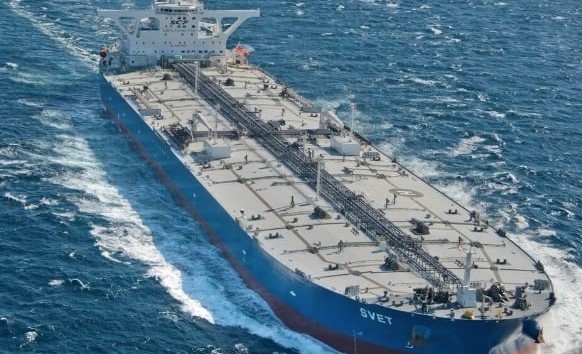The Chagos Islands, a small group of islands in the Indian Ocean, have become a topic of major international concern due to their strategic importance. Among these islands, Diego Garcia stands out because it hosts a crucial U.S. military base that plays a vital role in securing the Middle East. This remote airfield and naval facility allow the United States to launch and support military operations in the region without interference, as it lies far from countries that might impose restrictions.
Diego Garcia is uniquely positioned, isolated from regions that could limit its use, unlike other U.S. military bases in the Middle East that face operational limitations from host countries. For this reason, it has been a key asset for both the United States and the United Kingdom for years, providing a secure base for military deployments, including recent B-52 bomber missions used to stabilize U.S. naval presence in the Middle East.
However, a recent agreement between the UK and Mauritius has sparked controversy, as it could affect the control of Diego Garcia. This deal, which would grant Mauritius sovereignty over the Chagos Islands, is now facing strong opposition. Before it can proceed, the agreement requires approval from the UK Parliament. The specifics of the deal include Mauritius leasing the Diego Garcia base to the UK for 99 years, allowing military operations to continue, but there are deep-seated concerns that this setup might not ensure long-term security.
Concerns Over the Agreement and Potential Risks
A key source of worry for opponents is the precedent set by Britain’s experience in Hong Kong. After handing control of Hong Kong over to China, many protections that the UK had included in the treaty were eventually disregarded. Opponents fear a similar outcome in the Chagos Islands, worrying that protections for UK and U.S. operations in Diego Garcia could be ignored by Mauritius if political conditions change. The risk lies in the possibility that, if a new government took over in Mauritius, it might allow other countries, including China, to establish a presence on the other islands within the Chagos archipelago, creating a security risk for the Diego Garcia base.
The potential of increased Chinese influence is a significant concern. With China’s recent strategy of expanding its global military and intelligence presence, it could seek to gain access to the Chagos Islands, allowing it to monitor or disrupt U.S. operations at Diego Garcia. This concern is particularly prominent among critics who point to China’s growing global reach and what they term “lawfare,” a strategy of using legal means to achieve political or military goals. The strategic location of Diego Garcia makes it valuable for monitoring movements in the Indian Ocean and beyond, raising fears that China’s influence in the Chagos could compromise U.S. and UK interests.
Some legal experts argue that Mauritius lacks a historical claim to the Chagos Islands, as they lie closer to other nations, including the Maldives and the Seychelles. Despite this, Mauritius’ claim to the Chagos has gained support from the United Nations and the International Court of Justice (ICJ), with some critics attributing this support to anti-Western sentiment promoted by China and Russia. The UN General Assembly’s stance aligns with Mauritius, but opponents believe this outcome stems from broader international politics rather than historical evidence.
Opposition in the UK and U.S. Against the Agreement
In the UK, opposition to the agreement has emerged from various political groups, who argue that it would be a risky decision with long-term implications. Concerns are not limited to security alone; some believe the transfer would betray the interests of Chagossians, the people originally displaced from the islands when Diego Garcia was converted into a military base. Although there is no significant cultural or linguistic connection between Mauritius and the Chagos, Mauritius continues to push for sovereignty over the islands.
Political leaders in the UK, including members of the Conservative and Reform parties, have voiced strong objections to the deal. They argue that maintaining UK sovereignty over Diego Garcia is essential to ensure the continued secure use of the base. Some see the proposal as an attempt by anti-Western forces, including China and Russia, to weaken UK-U.S. strategic positions in the Indian Ocean.
U.S. Opposition and Concerns Over Strategic Security in Chagos Islands
Across the Atlantic, political figures in the United States have also voiced opposition. Senior members of the U.S. House and Senate Foreign Affairs Committees have openly criticized the agreement, raising concerns over potential risks to U.S. military operations. They worry that Mauritius might eventually allow Chinese influence within the Chagos, especially on islands near Diego Garcia. Given the island’s strategic importance, some view the agreement as a move that could potentially jeopardize the secure operation of one of the U.S.’s most critical military bases.
These concerns are also rooted in the sentiment that the Chagossians should not be placed under Mauritian rule, as they lack a connection with Mauritius. This has led some U.S. leaders to argue that the Chagos Islands should remain under British control, ensuring continued security for U.S. and UK military operations. The implications of the agreement are not only about political control but also about the future of the Chagossian community, who were removed from their homes decades ago and remain concerned about their homeland’s fate.
With strong opposition emerging from both the UK and the U.S., the agreement between the UK and Mauritius is now the subject of intense scrutiny. The decision has yet to be debated in the UK Parliament, where it will need approval before becoming a formal treaty. The outcome of this decision could have far-reaching consequences for both the UK and U.S., as well as for the strategic balance of power in the Indian Ocean region.


